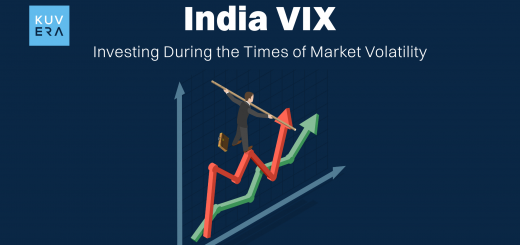In this blog, we shall discuss all about the Small Cap Index. Know what the major small cap indices on the Bombay Stock Exchange (BSE) and National Stock Exchange (NSE) are, how stocks are selected for each index, and what mutual funds and index funds follow such indices.
What Are Small Cap Indices?
Small-cap indices are stock market indices that track the performance of smaller companies with a relatively small market capitalisation. These indices consist of stocks of companies that have a smaller market capitalisation compared to large-cap (also known as blue chip stocks) or mid-cap companies.
In India, the National Stock Exchange (NSE) and the Bombay Stock Exchange (BSE) have their small-cap indices.
What Are The Major Small Cap Indices In BSE?
The BSE Small Cap 250 index is maintained by the BSE that tracks the performance of 250 small cap companies listed on the BSE. These companies are considered to have a smaller market capitalisation compared to larger companies and usually represent smaller, growing companies in the market. Hence, it gives a clear indication of how these smaller companies are performing in the market. Other BSE small cap indices include S&P BSE Small Cap and BSE Small Cap Select Index.
Top Mutual Funds That Track The BSE Small Cap 250
The top five mutual funds (as per their 3-year returns) that track the BSE small cap 250 index are as follows:
| Mutual Funds | AUM* | 1-year Returns | 3-year Returns | TER^ |
| Invesco India Small Cap Growth Direct Plan | ₹4,113 cr | 59.70% | 29.15% | 0.46% |
| HDFC Small Cap Growth Direct Plan | ₹29,175 cr | 44.41% | 27.76% | 0.67% |
| DSP Small Cap Growth Direct Plan | ₹13,781 cr | 45.48% | 26.42% | 0.88% |
| SBI Small Cap Growth Direct Plan | ₹28,375 cr | 46.32% | 25.79% | 0.66% |
| Union Small Cap Growth Direct Plan | ₹4,113 cr | 46.38% | 24.56% | 0.88% |
Source: AMFI data as of 5 July 2024
*AUM is Assets Under Management
^TER is Total Expense Ratio
What Are The Major Small Cap Indices In NSE?
The major small-cap indices in the National Stock Exchange (NSE) of India include Nifty Small Cap 50, Nifty Small Cap 100 and Nifty Small Cap 250. The Nifty Small Cap 50 is a stock market index that represents the performance of the top 50 companies with small market capitalisation listed on the NSE. These companies are smaller in size compared to the ones listed on the main Nifty 50 index and represent a diverse range of sectors and industries.
The NIFTY Small Cap 100 represents about 5% of the free float market capitalisation of stocks listed on NSE. On the other hand, Nifty Small Cap 250 captures about 8.2% of the free float market cap. It consists of 250 companies ranked from the 251th to the 500th in the Nifty 500.
Start investing in Index Funds.
Top Index Funds That Track The Nifty Small Cap 50
Here are the top three index funds (as per their 1-year returns) that track the Nifty small cap 50 index are as follows:
| Index Funds | AUM | 1-year Returns | 3-year Returns | TER |
| Axis Nifty Smallcap 50 Index Growth Direct Plan | ₹311 cr | 72.85% | NA | 0.25% |
| Kotak Nifty Smallcap 50 Index Growth Direct Plan | ₹60 cr | 72.51% | NA | 0.41% |
| Aditya Birla Sun Life Nifty Smallcap 50 Index Growth Direct Plan | ₹162 cr | 72.15% | 20.55% | 0.46% |
Source: AMFI data as of 5 July 2024
Top Mutual Funds That Track The Nifty Small Cap 250
The top five mutual funds (as per their 3-year returns) that track the Nifty small cap 250 index are as follows:
| Mutual Funds | AUM | 1-year Returns | 3-year Returns | TER |
| Nippon India Small Cap Growth Direct Plan | ₹51,566 cr | 60.68% | 34.70% | 0.68% |
| Quant Small Cap Growth Direct Plan | ₹21,243 cr | 68.71% | 33.97% | 0.64% |
| Franklin India Smaller Companies Growth Direct Plan | ₹12,797 cr | 62.99% | 33.31% | 0.92% |
| HSBC Small Cap Growth Direct Plan | ₹14,878 cr | 59.27% | 32.71% | 0.68% |
| LIC Small Cap Growth Direct Plan | ₹237 cr | 60.29% | 31.41% | 1.52% |
Source: AMFI data as of 5 July 2024
Top Index Funds That Track The Nifty Small Cap 250
Here are the top five index funds (as per their 1-year returns) that track the Nifty small cap 250 index are as follows:
| Index Funds | AUM | 1-year Returns | 3-year Returns | TER |
| Edelweiss Nifty Smallcap 250 Index IDCW Payout Direct Plan | ₹53 cr | 65.76% | NA | 0.14% |
| Motilal Oswal Nifty Smallcap 250 Index Growth Direct Plan | ₹688 cr | 65.55% | 27.01% | 0.36% |
| SBI Nifty Smallcap 250 Index Growth Direct Plan | ₹747 cr | 65.29% | NA | 0.41% |
| ICICI Prudential Nifty Smallcap 250 Index Growth Direct Plan | ₹299 cr | 65.11% | NA | 0.30% |
| HDFC NIFTY Smallcap 250 Index Fund | ₹179 cr | 64.96% | NA | 0.30% |
Source: AMFI data as of 5 July 2024
What Is The MSCI Small Cap Index?
The Morgan Stanley Capital International (MSCI) Small Cap is a series of indices that measure the performance of stocks from comparatively smaller capitalisation across both developed and emerging markets. It targets the bottom 14% of each country’s market capitalisation. The MSCI India Small Cap Index and MSCI World Small Cap Index are two examples that track small-cap stocks in India and globally, respectively.
What Are The Advantages Of Investing In Small Cap Index?
You can start investing in mutual funds and index funds that track small-cap indices for many reasons. Here are some of the reasons why you include them in your investment portfolio:
1/ High Growth Potential: Small-cap companies often have significant growth potential. These companies are at an early stage of development and might have innovative products or services that can lead to higher growth potential.
2/ Comparatively Higher Returns: Small-cap stocks are usually under-represented among other fund schemes due to their smaller market capitalisation. So, they can provide individual investors with an advantage as they can invest in these companies before they attract the attention of institutional investors, potentially leading to higher returns.
3/ Valuation: The lower visibility of small cap stocks can result in these stocks being undervalued as compared to large cap stocks. This can present an opportunity for you to acquire these stocks at a lower valuation, with the potential for significant upside once their value is recognised by the market.
4/ Diversification: You can add funds tracking small cap indices to your investment portfolio for diversification. Small cap stocks tend to have a low correlation with large cap stocks. This can provide a source of diversification that can help with your overall portfolio risk.
What Are The Risks Of Investing In Small Cap Indices?
It is crucial to know the risks of investing in small cap funds as well. Here are some of the things that you must remember before including them in your investment portfolio:
1/ Highly Volatile: Small cap funds are known for their high volatility. They can experience substantial price swings, leading to potentially significant losses if the market does not move as expected. The higher volatility increases the investment risk compared to other investment options.
2/ Lower Liquidity: Mutual funds that track small cap indices may face liquidity challenges as institutional investors generally show less interest in them. This can make it difficult to buy or sell units in the market.
3/ Other Factors: The performance of small cap mutual funds is influenced by factors such as stock selection and stock performance. Due to the multitude of variables involved, the performance of small-cap funds may not always meet expectations, leading to subpar returns.
Interested in how we think about the markets?
Read more: Zen And The Art Of Investing
Watch here: Expert Insights for Smart Investing
Start investing through a platform that brings goal planning and investing to your fingertips. Visit kuvera.in to discover Direct Plans and Fixed Deposits and start investing today.
AREVUK Advisory Services Pvt Ltd | SEBI Registration No. INA200005166
DISCLAIMER: Mutual Fund investments are subject to market risks. Read all scheme related documents carefully. Registration granted by SEBI, membership of BASL (in case of IAs) and certification from NISM in no way guarantee performance of the intermediary or provide any assurance of returns to investors. Investments in securities market are subject to market risks. Read all the related documents carefully before investing. The securities quoted are for illustration only and are not recommendatory.












